Christian Leadership
Master's DegreeMaster of Arts – Christian Leadership
Program Purpose: The purpose of this program is to produce in the world a body of paradigmic ministers able to shift God’s New Creation Church leadership and congregation to His divine order as pointedly described in scripture.
Program Description
The program description for the Master of Arts in Christian Leadership Program is a three-dimensional paradigmic sequence that readies students for archetypical and prototypical ministerial call to serve the Godhead in the 21st century.
Highly ecclesial in nature, the program nonetheless delivers its studies in accordance with the whole word of God springing from scripture’s divine order, which undeniably means first apostles, secondarily prophets, and thirdly teachers. In this vein the program reorders church hierarchy according to the word of God, structuring its superintendancy according to His world’s infrastructure.
Toward this end, this program requires a thorough undergraduate education in general Bible, scripture’s authoring mantles, and their inception, the nurture, development, and guardianship of the early church. Also needed is a Bible supported education in Ephesians 4:11’s fivefold offices and their divinely decreed aims, measurements and outcomes.
Students of this program will also need a strong undergraduate leadership program to enter the course with the mentality to undertake and succeed in these teachings. To further strengthen student preparedness for these teachings, classes in Apostolic Christianity, Jesus Christ, and His Christology, and biblical versus traditional ecclesiology.
Program Objectives
The objectives of the Master of Arts in Christian Leadership Program are to:
- To initiate or build on prior studies sequenced to quicken students to engage in deeper or more foremost study of this subject to meet the requirements for increasingly involved handling of the subject in pursuit of the graduate degree.
- Give multiple lectures that engage students in discussions, and query response sessions on the subject to impart and embed its most vital idea and constitutional principles in them to assure they have sufficient information to pass the program and ample material to complete assignments.
- Technologize, etymologize, and pragmatize substantive terminology that undergirds theological doctrines and promotes student’s practical appreciation of course subject matter.
- Redefine and thereby realign modern Christianity according to its eternal origin and consequently biblical roots.
- Activate the paradigmic process in students to acclimatize them to the three dimensions of God’s divine order shift.
- Revisit from a higher vantage point, the core truths, and principles of the Christian faith as Christ delivered them to His apostles and they to the early church, so students embark upon their careers knowledgeable of Christ’s sentiments in Matthew 5:31-39.
- Expand student’s undergraduate perspectives on Christ and His creation, occupation, and delegation of His official authorities so they relate to course teachings without undue conflicts.
- Broaden student’s entry ideals and ideologies, to include and cooperate with the apostles and prophets the Lord is placing at the head of His church and His earthly kingdom, allowing students to participate in His paradigmic shifts and not obstruct them.
- Accentuate the differences apostles and prophets make as public servants in God’s kingdom and ecclesial institutions, showing why the differences are necessary for Him to assure Matthew 16:18 so students see their ministry involvement as more orbital in contrast to the present largely functional view of divine service.
- Enable students to infuse their callings with the key concepts of apostolicity and prophetics despite being possibly summoned to one of the other offices.
- Instruct students in the traits and attitudes of all God’s ministry offices, distinguishing them from His giftings so they accurately identify, screen, and place the talent the Lord appoints them.
- Provide students evaluable, measurements, and other assessment tools to gauge skills effectively, and ministry service compatibility so they see it as more than a public display of personal gifts and talents.
- Teach students how to design, implement, and sustain the government and administration of an enterprise or venture so they can develop their own in active service to the Lord.
- Distinguish for students the rules, canons, policies, and practices of a Christian ministry that pertain to a king’s realm, so they comprehend when Christ is behaving and ruling as a savior and a sovereign.
- Assure students have ample knowledge of Jesus Christ’s kingship and its express influence in His kingdom, world, and church affairs so students discern His hand and cooperate with and carry out His initiates.
- Profile for students the historical tracks of God’s agenda so they detect and counteract His adversaries’ assaults on it.
- Instill in students the elements and articles of the Lord’s divine judgements and justice so they render His decisions and implement His laws as well as exemplify and execute His righteousness as His representatives.
- Arm students to fend off Christ’s adversaries so they vigorously and faithfully defend their works, followers, leaders, and safeguard what the Lord entrusts to them.
- Equip students to assimilate their education impressively enough to be invited to serve on various ecclesial and secular bodies to deliberate controversies, address issues, contribute to policy, and contemplate or influence human and world affairs.
- Thoroughly educate students in God’s spiritual protocracy so they align with those assigned to superintend their works and proactively engage those attempting to oppose them, unmoved by calm or congenial façades.
- Show students how to brand their ministries and model their brand to appeal to backers and followers.
- Qualify students to work in the public sector if they are not called to God’s ecclesial service by augmenting academics to enhance professional training as part of the program’s universal wisdom component.
- Inseminate all learning processes, especially professional training with ministry ethics, fidelity, and best practices principles.
- Round out student education in biblical and ecclesial features that refine and strengthen their success potential, so they undertake God’s service adept at human and organizational dynamics, conflict resolution, situation and crisis management, communications, and their related skill sets.
- Cognitively and effectively ground the entire ministry process in scripturally organic, culturally unmodified Christianity.
- Empower students to disciple Apostolic Christians to transition as three-folders and five-folders to Christ’s 21stCentury paradigm, equipping them to settle those they attract in Christ’s Christianity after drawing them from culture crafted, human command Christianity prevalent in the Lord’s ecclesia today.
- Enable all objectives to be depicted, actualized, and executed in full scale ministry.
- Capacitate students to take the lead in all appointments and assignments and demonstrate God’s leadership by opting to steer and nurture rather than to boss or bully those in their charge.
- Assist students in developing their personal leadership style, how to model and refine it, and then to utilize the developed style in different settings and situations experimentally, auditing and adjusting it along the way.
- Peoplize the program theoretically, biblically, and applicatively to display its assimilation and projected use in actual leadership environments.
- Enable students to compile, compose, construct the materials and products needed to complete and present course requirements for degree credit and later as a ministerial professional.
- Enable students to successfully produce coursework and submission that meet completion criteria for passing the program with an 80% or better grade.
- R2 - 3 Years (Nine Semesters)
- R3.0 GPA or Higher to Pass
Got Questions? Call us at 877-419-1299.
Program Details
Entrance Requirements
What is C.O.R.E.?
CORE is the Common Office Requirement Education for training and developing future ministry officers.
Master of Arts- Christian Leadership Program Outcomes
The outcomes for the Master of Arts in Biblical Psychology program are the:
- Ability to say and show program distinctives compare to leadership in general.
- Ability to detail what qualifies as Christian leadership in the church and in the world.
- Ability to exhibit significant portions of the Savior’s leadership spectrum from each member of the Ephesians 4:11 fivefold offices and differentiate them from those of 1 Corinthians 12:28.
- Ability to sketch the human and divine issues and conditions that make leadership in principle an ongoing function.
- Ability to scale the leadership spectrum metrically, positionally, and perfunctorily assigning alpha-numeric designates to model its content for assessment and placement purposes.
- Ability to serve in at least one well defined leadership capacity on the master and doctoral level in a way that distinguishes the two strata.
- Ability to forge leadership alliances on all levels relative to creation’s seven spheres and to collaborate on mutual and diverse issues and ventures.
- Ability to interact with and work harmoniously with similar and dissimilar types of leaders to achieve a common goal that is mutually rewarding to all involved and affected.
- Ability to establish and practice effective leadership communications from all angles of the leadership spectrum.
- Ability to project and prepare quality materials to identify, train, and employ or place those called to the Lord’s leadership, and those to be led by them.
- Ability to generate, implement, and uphold responsible and actionable policies, rules, codes, protocols, and procedures as a Christian Leader, that do not eclipse or violate scripture’s canon.
- Ability to setup and draft the proceeding for customary and situational panels to deliberate and resolve typical and atypical conflicts, controversies, and grievances common to all leadership, drawing the resolutions and dispositions to come from them.
- Ability to deploy comparable and capable leaders to various areas to found works or expand the one started as home base, and to say why as well as explain reasons for choices and rationale for delegated tasks.
- Ability to settle disputes, resolve internal and external conflicts and to restore peace and accords that have been fractured by differences and disagreements.
- Ability to create interventionary solutions and instruments and to intervene when needed to support or replace a disruptive or embattled leader.
- Ability to think critically to render sound judgements, provide safe counsel and direct or redirect straying, errant, or contradictory subordinates and followers to safeguard the work, spare the flock, and stabilize unstable subordinates and allies.
- Ability to complete course and degree qualifying requirements successfully, including written and verbal examination, oral defense, presentment of created material or concept, demonstration of subject mastery; when assigned, completed field studies, extensive research and its outcomes that proves theories or shows success in casework and satisfactorily completed internship or apprenticeship of 500 or more hours.
Completion Requirements
Students must complete their training with passing grade 3.0 or higher in major core course requirements. Student must take a minimum of 45 credit hours with Price U to meet graduation requirements.
Homework, Assignments, Submissions, Tracking
The program syllabus and student requirements will be available through the student portal access. Lectures will be conducted online as necessary throughout their program.
Access to online lectures will be given through the Student Portal Access.
Quizzes and Exams will also be completed through the portal’s class instructions and other requirements will be explained for each assignment.
Students will receive assignments, upload assignments, and see their grades inside of their portal.


